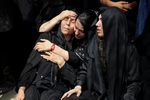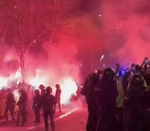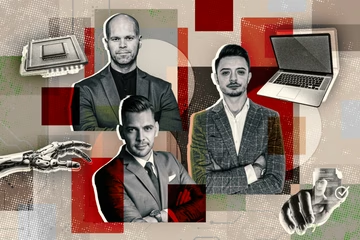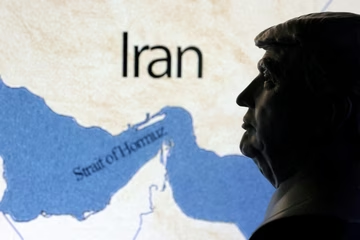New high representative for Bosnia: Responsibility for crimes is individual

There is no long-term stability without strict prosecution of perpetrators and without open access, recently appointed international envoy in Bosnia and Herzegovina Christian Schmidt said on Wednesday, a day after the UN court handed down a life imprisonment sentence for Ratko Mladic for the crimes during the Bosnian war of the 1990s. He also said that the responsibility for the crimes against humanity, especially genocide, is individual.
Oglas
“This court makes it clear that there can be no justification for war crimes. Without strict prosecution of perpetrators and without open access, there can be no longer stability. It is about individual responsibility for crimes against humanity. Especially for genocide. Regardless of origin, rank, or other excuses. For what genocide is: a purely brutal, inhuman violence. There is no justification for that,” the German diplomat, who is taking over the duty of the international community's high representative in BiH as of August 1, was quoted as saying.
Schmidt emphasised the “bitter experience” that the war crimes and genocide were possible to happen in Europe in the late 20th century, noting that the international community “hesitated too long” before it intervened in the wars in the former Yugoslavia.
“It was only after the Srebrenica genocide in July 1995 that the international community intervened. By enabling the Dayton Peace Agreement at the end of 1995,” said Schmidt who is taking over the Office of the High Representative, which oversees the civilian part of the implementation of the 1995 peace deal for BiH.
In a Facebook post published by the Sarajevo office of the Konrad Adenauer Foundation, Schmidt was also quoted as saying that The Hague tribunal for the war crimes in former Yugoslavia had an “invaluable importance” for the peoples of Bosnia and Herzegovina but also for the rest of the world.
All citizens of Bosnia and Herzegovina are entitled to the right to peaceful coexistence and have the right to know what happened in the past and that there will be no violence, terror, and destruction in the future, he stressed.
“Therefore, war criminals are not distinguished by heroism. My country had to learn, understand and overcome this in a difficult way. The international community has helped a lot. Those responsible must work closely with civil society. They must resolutely oppose covering up or even denying the crime,” added Schmidt.
The Hague-based UN court confirmed on Tuesday the first-instance ruling for Ratko Mladic, sentencing him to life in prison for the Srebrenica genocide and other war crimes and crimes against humanity during the 1992-95 war in Bosnia and Herzegovina.
Kakvo je tvoje mišljenje o ovome?
Učestvuj u diskusiji ili pročitaj komentare
Oglas
Kakvo je tvoje mišljenje o ovome?
Učestvuj u diskusiji ili pročitaj komentare
Oglas
NAJČITANIJE
Oglas
Oglas
Najnovije
Oglas
Oglas





 Srbija
Srbija
 Hrvatska
Hrvatska
 Slovenija
Slovenija



























































